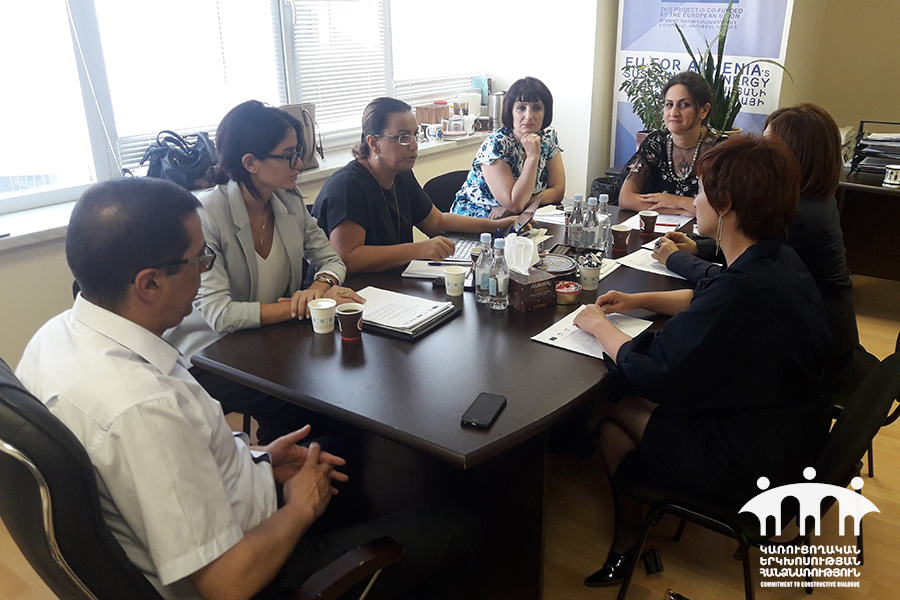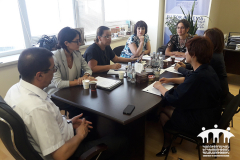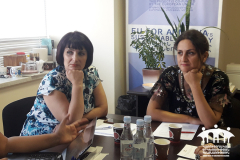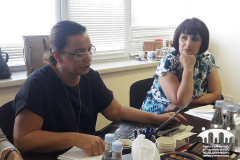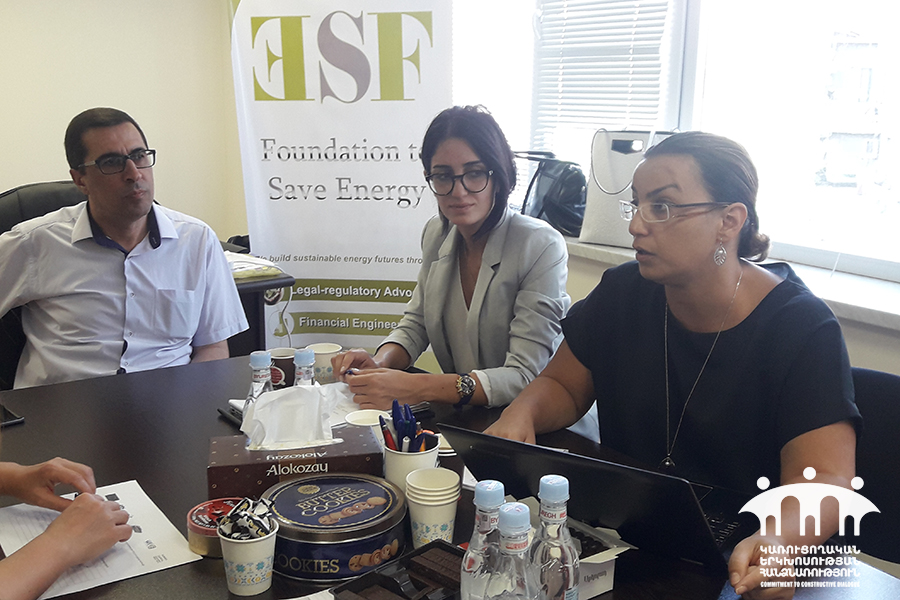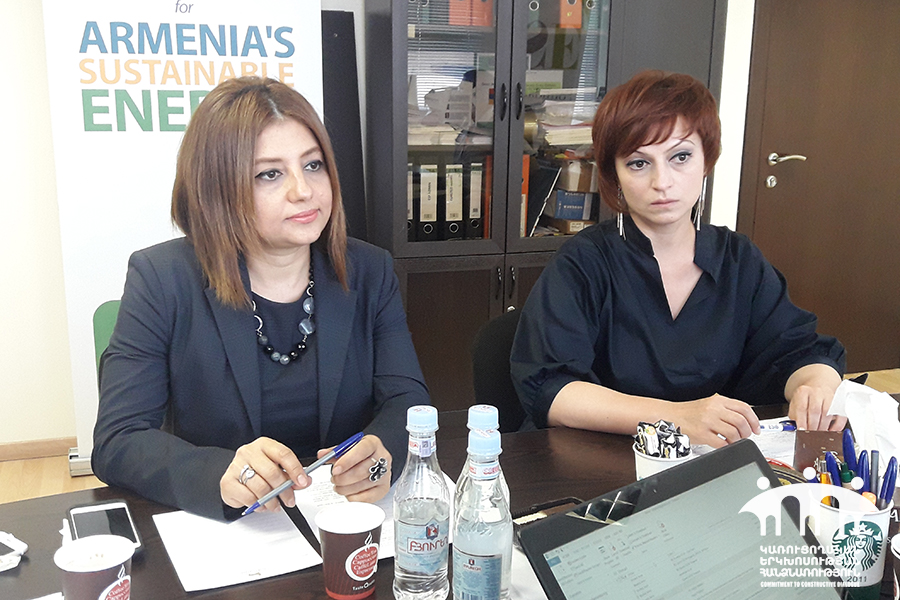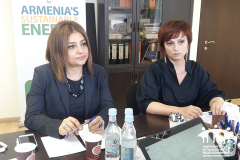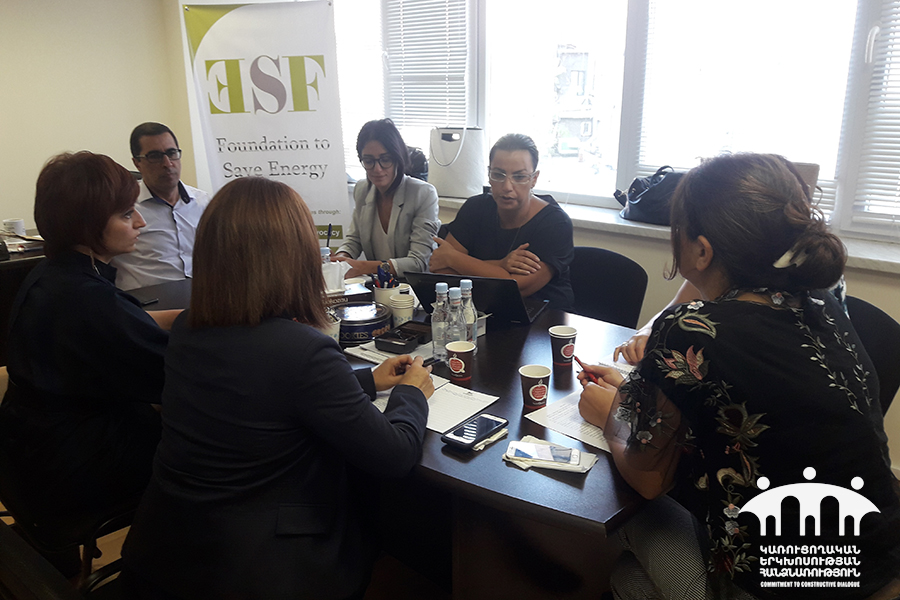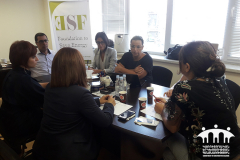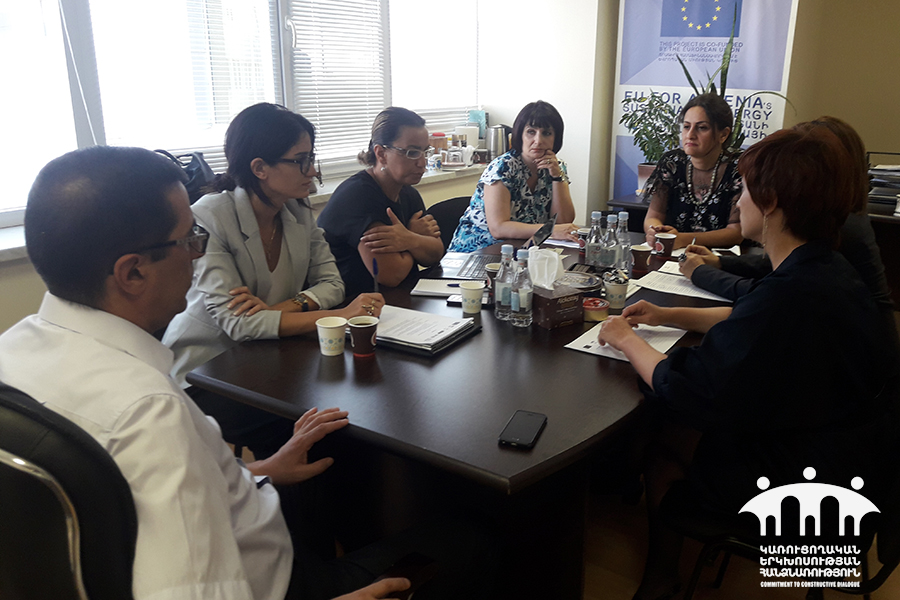
On 17 September 2018, the founding assembly of the “CSOs for Sustainable and Transparent Energy Development” coalition at the office of the Foundation to Save Energy.
Representatives of all 4 CSO members of the coalition were present.
Astghine Pasoyan, the President of the “Foundation to Save Energy” NGO, delivered a welcome speech and presented the drafted declaration and rules and regulations already circulated among consortium member CSOs, as well as their goals.
Both the declaration and the rules and regulations were acceptable for all. Thus, the heads of CSOs signed the document.
After the adoption of the declaration, the announcement on the expansion of the coalition and other CSOs’ involvement in it was discussed. It was decided that the document would be circulated and that changes would be made based on comments and propositions, if need be. Only after that will it be circulated by coalition member CSOs among sectoral CSOs.
During the meeting, the matter of inviting and educating women with the respective qualifications was also discussed, in addition to that of involving them in monitoring, as foreseen by the project.
After the meeting, it was expected that a trainers’ training would be organised during which representatives of 2 CSOs would study in the Republic of Armenia with Sustainable Energy Development and Climate Action Plan Development Guide, so that they would educate the already invited women to involve them in monitoring in the future.
The “Commitment to Constructive Dialogue” project is implemented with the financial support of the European Union by a consortium of civil society organizations, which are the “Armenian Lawyers’ Association” NGO, Agora Central Europe o.p.s (an NGO from the Czech Republic), the “Armenian Center for Democratic Education-CIVITAS” NGO, the “International Center for Human Development” Public Organization, the “SME Cooperation Association” NGO and the Union of Communities of Armenia.
The overall objective of the project is to enhance the influence of CSOs and their coalitions (networks) on the public policy process. This will enable the organizations (that already work in target coalitions) to gain new resources, unite civil society experts and encourage them to participate in the formation of local and national policy agenda, identify the common problems and priorities and to apply to the government with constructive and strategic policy initiatives.


